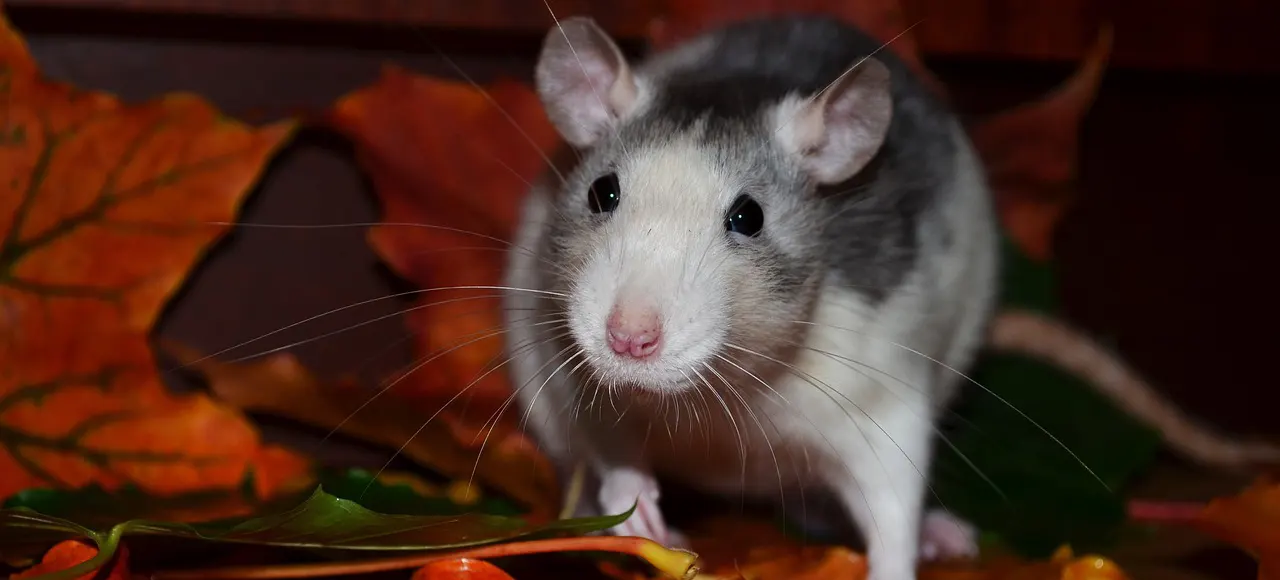Rats (members of the genus Rattus) originated in Asia and Australia but are now found all over the world. These fascinating rodents have inspired gruesome tales from the sewers beneath New York City and simultaneously wiggled their way into many a home as a pet companion. They are known to be curious, intelligent, and affectionate - so let’s explore their life and lifespan in more detail.

How Long Do Rats Live? - Lifespan of Wild Rats
The average lifespan of a rat in the wild is often less than one year. The most contributing factors to premature death are:
- Predators
- Disease
- Inadequate food and water
While genetics play a role, nutrition is of huge importance. Rats, like many small mammals, have fast metabolisms and need food to support their energy needs regularly. In times when food is hard to come by, they can enter a state of lowered physiological function to conserve energy. It’s crucial for rats to have access to both food and water regularly to maintain their health and survival.
Factors Influencing the Lifespan of Wild Rats
Environmental Conditions
Rats are crafty little creatures that can adapt to living in all sorts of environments and able to withstand some pretty harsh conditions. Contrary to popular belief, they are not dirty by nature; in fact, a clean and calm environment can significantly improve the life expectancy of a rat. When asking ‘how long do rats live?, one must also consider increased stress levels and subsequent lower immune responses in animals constantly in survival mode.
Predation
Birds of prey are at the top of rat predators, owls specifically. Like owls, rats are nocturnal and hence both species roam and hunt at night. Rats also make up a good portion of a snake diet. Bobcats, weasels , and even domestic pets prey on rats.
Access to Food and Shelter
As mentioned before, rats have fast metabolisms and require frequent feeding. Adequate food and clean water are crucial to the survival of rats. Shelter from predators, for nesting and food storage are equally important. In the wild, rats often burrow into the ground and build their nests out of sight, but being the adaptable little rodents they are, they may also gather grass, straw, and twigs to create nests below rocks and around foundations and concrete slabs.
Lifespan of Pet Rats
While considered a pest animal by some and being research subjects in laboratories, others have found rats to be beloved pet companions. Their intelligence and social nature helped rats gain a great deal of popularity. The average lifespan of rats in a pet setting is two to three years, double or triple of that of a rat in the wild. Did you know? “Rodney” a brown rat from Oklahoma has a record! He earned a spot in the Guinness Book of World Records with a lifespan of 7 years and 4 months.
Factors Influencing Pet Rat Lifespan
 Proper Diet and Exercise
Proper Diet and Exercise
Good nutrition is important for any pet (or human, for that matter). Feeding options range from store bought rat pellets to a variety of vegetables, fruits, and other fresh foods. Even cooked liver or other clean meats, scrambled eggs, and pasta can make yummy treats for your pet rat. Keep in mind, the portions should be teaspoon size so your pet rat doesn’t end up being too chunky. Exercise wheels or balls, plenty of room and fun toys are an excellent idea to keep your rat fit and entertained.
Regular Health Check-Ups
Veterinary check ups and care are important for a pet rat. Teeth should be inspected regularly and a licensed vet may spot any early signs of:
- Cancer: Rats are prone to both benign and malignant tumors.
- Parasites: Rats may have intestinal parasites, such as worms, as well as skin parasites, such as lice.
- Infections: Respiratory diseases and other infections can affect rats.
- Kidney disease: Older rats are prone to kidney disease, as well as kidney and bladder stones.
Socialization and Mental Stimulation
Rats are smart, curious, and adventurous. Additionally, they recognize their favorite human and can be quite social and affectionate. While primarily nocturnal, they can spend a few hours during the day playing or exploring the world around them. To keep your rat stimulated, consider puzzle box feeders or an obstacle course. The answer to how long do rats live for greatly depends on their care and management.
Rodent Management around Your Home
If you find yourself with a rat or three and you are certain that you don’t own any pet rats, you might prefer for them to leave. Rats and other rodents are excellent at finding and squeezing through gaps or holes in foundations, homes, and sheds. With rats producing several litters of 8-18 pups in one year, you’ll want to get on preventing them from entering your home sooner, rather than later.
Call in the Wildlife Experts at Hawkeye and evict rats and other pest animals.














